ANTIVIRAL. Excellent sci-fi horror by David Cronenberg’s son

His cyberpunk Videodrome still stands as one of the best horror films in history for me. The director’s son, Brandon, decided to follow in his father’s footsteps, and in 2012, he came up with his own body horror, Antiviral. I must admit I was somewhat apprehensive about it. I was afraid that young Cronenberg might rely solely on his surname rather than talent. The film turned out to be a pleasant surprise.
In Antiviral, Brandon Cronenberg takes us on a journey to an alternative reality where an unhealthy obsession with celebrities has reached its peak. Given what’s happening there, paying $40,000 for Justin Bieber’s hair seems like a completely harmless, healthy thing to do. In the film, people, wanting to resemble their favorite celebrities, pay hefty sums to inject themselves with viruses caught by those stars. Specialized clinics facilitate this for fanatics.
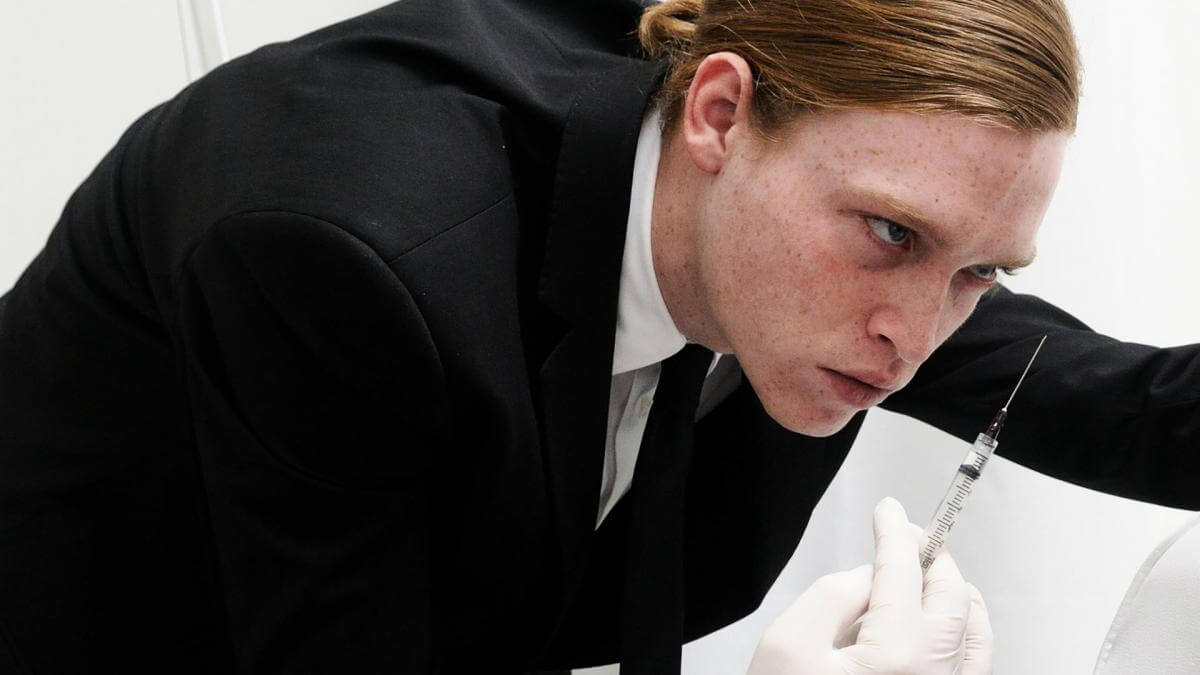
The story seems to be just a pretext to draw attention to the escalating problem of obsession among many young people. It has its flaws, but it holds together. For most of the screening, the audience has no clue what’s going on, but eventually, the narrative comes together coherently, which works in its favor, heightening the tension. Surprising plot twists evoke astonishment.
The main character, Syd March, is not your typical protagonist. He works at the clinic, and we see that his morality is dubious. He tells every customer the same thing. Particularly significant is the sentence: “It’s somehow perfect, isn’t it?” Besides, it’s hard to identify with him. He has human weaknesses, the greatest of which is a craving for money. As a viewer, I was hesitant to admit any resemblance to him. Dislike grew until the resolution. His appearance, undoubtedly affected by the disease, also contributed to this. At times, it was downright caricatural. Caleb Landry Jones perfectly embodies this character. Syd March is believable at every moment. We see a man brought to complete physical and psychological destruction.
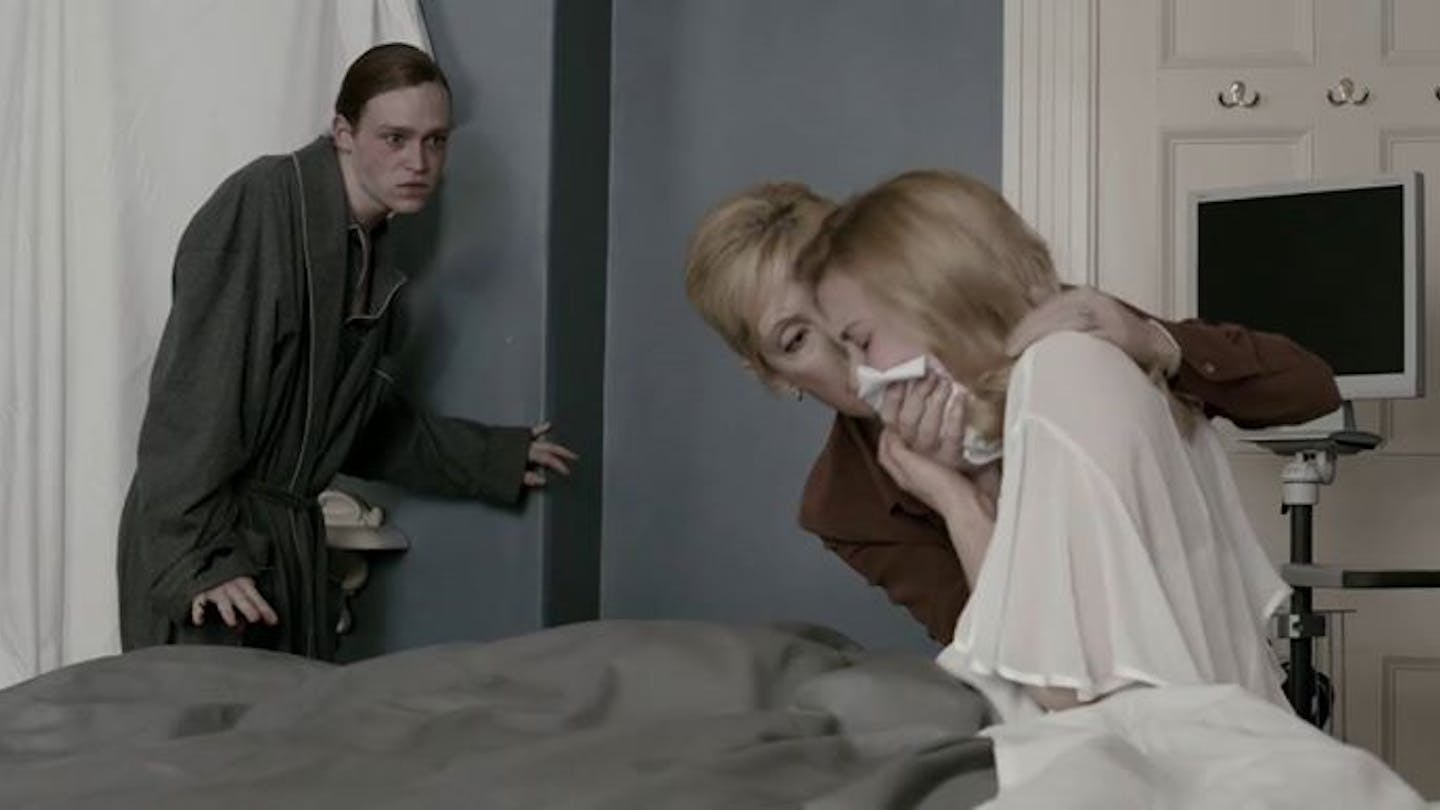
The main character is not an exception. The morality of each character is questionable. The star who sells her cells will do anything to be even more famous, exploiting fans’ obsessions. All of this contrasts with an aesthetic that at times reminded me of George Lucas’s THX 1138. The abundance of white in the picture seems like an attempt by the alternative society to preserve innocence, which is not very successful.
Static dominates, lending a certain severity. Only when the main character “falls apart” does the number of panoramas and camera movements increase. Moreover, increasingly frequent handheld shots perfectly complement the loss of mental balance. Karim Hussain, as a cinematographer, did a great job.
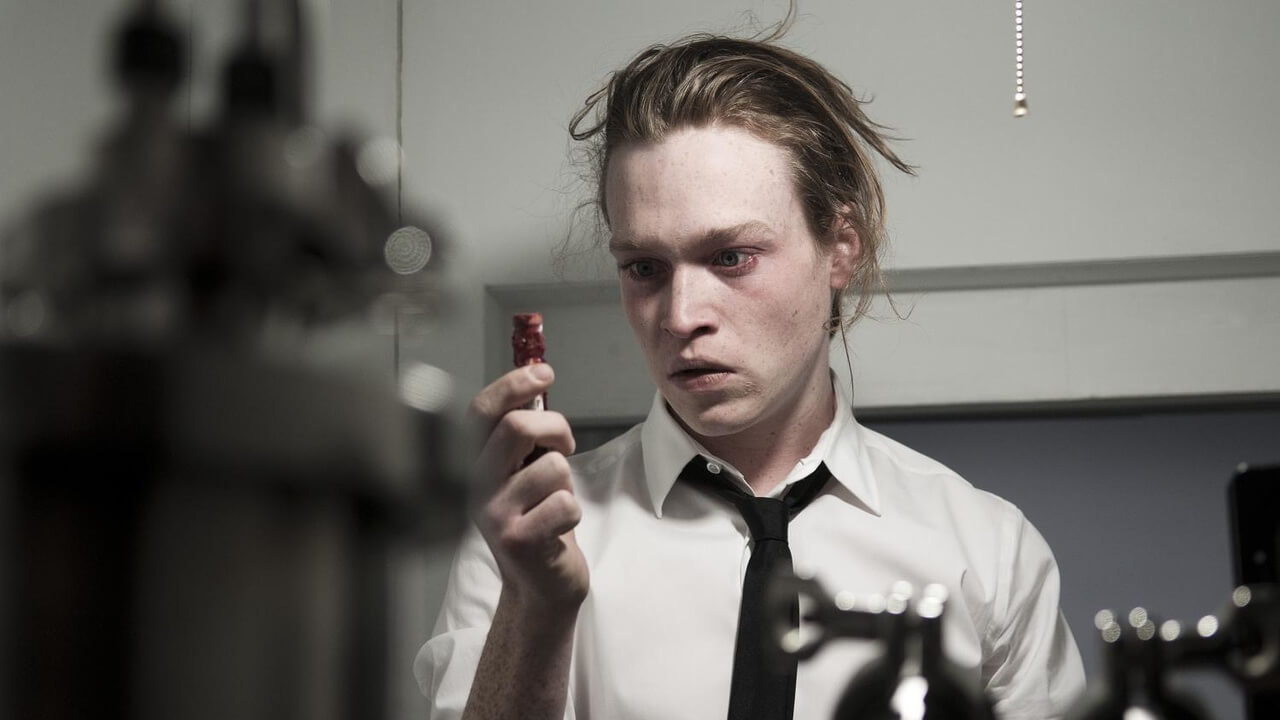
The static perfectly complements the silence, allowing us to contemplate what we see, encouraging thoughts and enabling us to draw conclusions as events unfold. Music appears not too often, but at such appropriate moments that it always evokes some emotions. It is perfectly matched to the image and creates a unique atmosphere. Every production element here has its significance. It advances the action, provides new information about the character, guides the viewer through their psyche, until it leads to a complete loss of sanity.

The ending of Antiviral is very pessimistic. Nietzsche’s words come to mind: “When you gaze long into an abyss, the abyss also gazes into you.” When the credits roll, there is a feeling of dissatisfaction. It’s hard to believe in Syd’s transformation, and one almost wants to ask for further development of the plot.
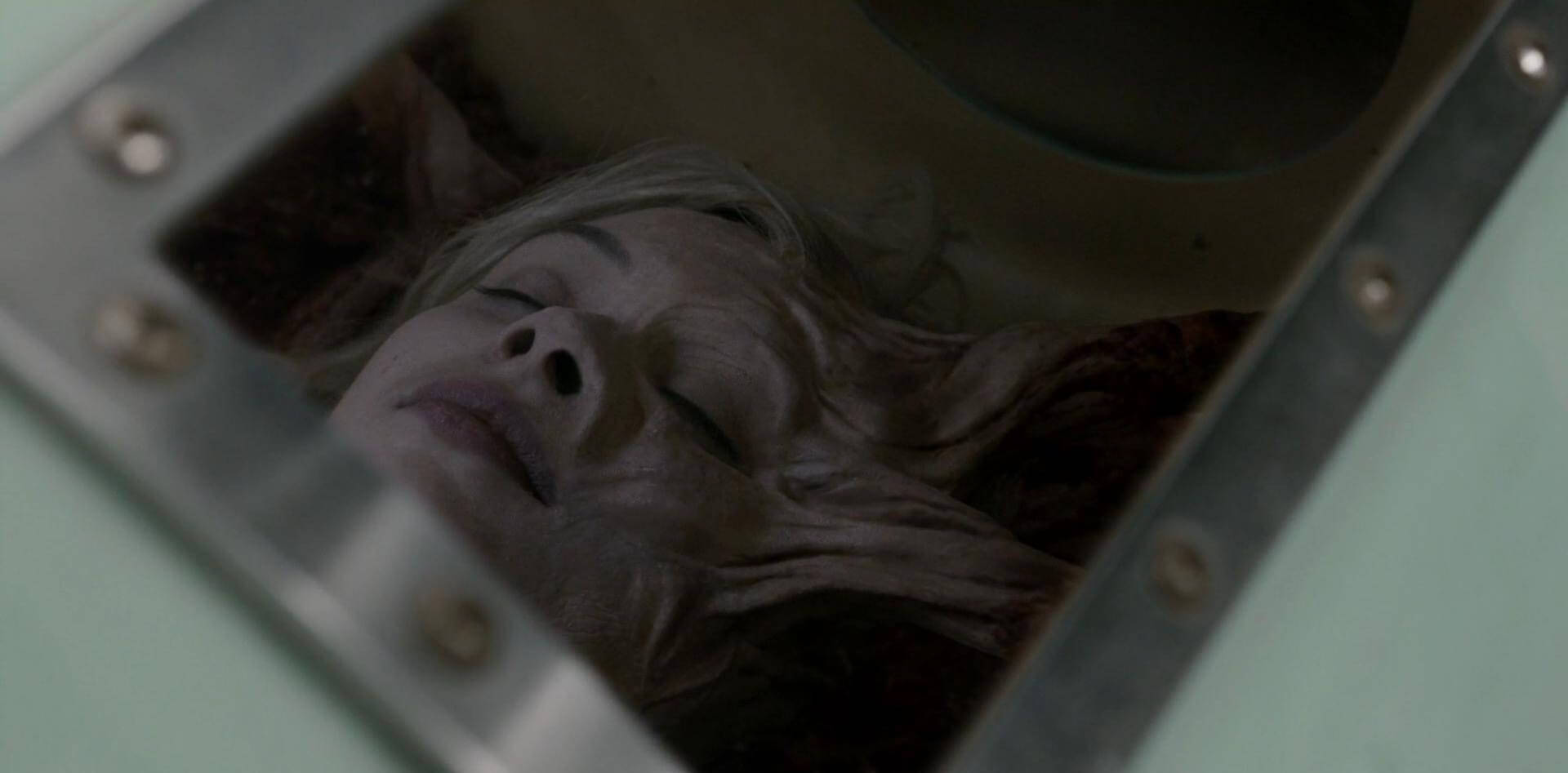
Antiviral is like a return to the classics of body horror. The main character undergoes torment, and the disease causes mutations in his body. References to the older Cronenberg’s work are also not lacking. At one point, a woman on the TV screen orders herself to be harmed. While not abundant, such references bring much joy. However, one shouldn’t expect “out there” physical tortures. They appear, but very rarely. That’s not the theme of this production, which left me with a bitter taste.
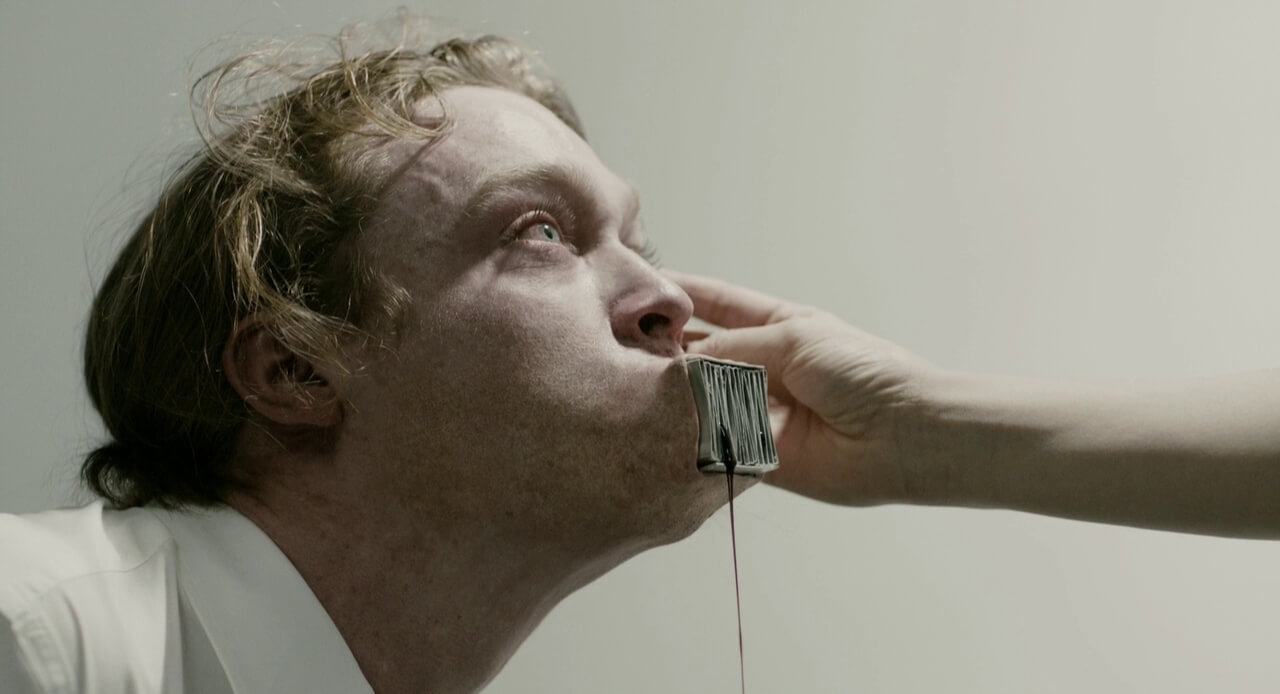
Antiviral is truly a good film. It has an interesting story to tell and aims to draw our attention to a growing problem. It keeps the audience in suspense from beginning to end and leaves them with a certain distaste, prompting reflection. As a viewer, I didn’t want to identify with the main character; I hated him. Nevertheless, upon reflection, I realized I had more in common with him than I would have liked.
Words by Rafal Christ

